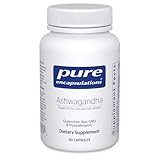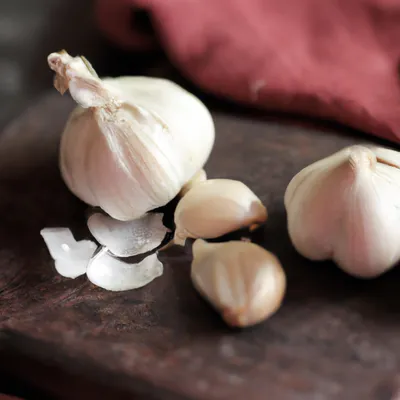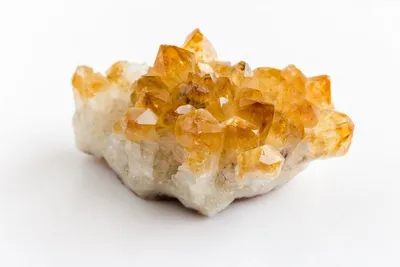Unlocking the Power of Ashwagandha: Nature’s Ultimate Stress Reliever
Key Ideas
- Ashwagandha is an incredibly versatile adaptogenic herb with a long history of use in traditional medicine, offering scientifically supported benefits that range from stress relief and improved sleep to enhancements in brain function and physical performance.
- With key compounds like withanolides and alkaloids delivering their adaptogenic, antioxidant, and immune-supportive effects, standardization is essential for supplement efficacy.
- Research indicates that ashwagandha can help alleviate anxiety, promote better sleep, protect brain function, and enhance endurance, although individual outcomes vary.
- Ashwagandha is available in various formats, including powders, capsules, and extracts. Opt for quality, responsibly sourced products, which tend to be safe and effective.
- Because of possible side effects and interactions with other drugs, consultation with a healthcare provider before supplementation is crucial for individuals with pre-existing health conditions or who are taking other medications.
- Active research and sustainable cultivation practices are shaping the future of ashwagandha, promoting informed, ethical, and personalized applications worldwide.
- Daily stress relief supplement: This clinically studied blend of Ashwagandha root powder and root extract supports the body’s natural response to emotional, mental, and physical stress. It aids in reducing stress-related fatigue and exhaustion and is clinically studied to reduce stress, while supporting the adrenal glands to lower cortisol levels.*
- Herbal focus supplement: Supports mental clarity and focus, helps improve concentration, promotes learning ability, and is clinically studied to help improve mood and emotional balance*
- High potency formulation inspired by Ayurveda: Our Ashwagandha capsules include a clinically studied blend of Ashwagandha powder and extract straight from the root instead of simple crushed Ashwagandha commonly used by competitors
- Thoughtfully crafted: Himalaya’s Ashwagandha organic formula is also vegan, non-GMO, and gluten free without any binders, fillers, or soy; an ideal ayurvedic supplement for common dietary restrictions
- Family-owned & trusted: Himalaya herbal supplements blend time-honored Ayurvedic herbs with over 95 years of family-owned expertise to deliver trusted and effective care
Last update on 2025-12-20 / Affiliate links / Images from Amazon Product Advertising API
Ashwagandha, a herb popular in old-school wellness circles, is distinguished by its root and leaf extracts. People have used ashwagandha to help cope with stress, promote mood, and increase energy.
Its primary active compounds, known as withanolides, are present in numerous supplements and teas.
Research suggests that it can support sleep, attention, and even muscle growth, but outcomes vary among individuals.
Here’s why so many gravitate towards ashwagandha — it aligns perfectly with a habitual lifestyle and contemporary wellness demands.
Available in powder, capsule, or tea form, it’s effortless to incorporate into most regimens.
After that, the post delves into how ashwagandha works, what to look for before use, and how to select safe and quality products.
What is Ashwagandha?

Ashwagandha, or Withania somnifera, is a small, evergreen shrub in the Solanaceae family, which also includes tomatoes and potatoes.
This medicinal herb has been used for centuries in Ayurveda as a dietary supplement, prized for its broad-spectrum nature and efficacy in supporting stress, sleep, and overall vitality.
While the root is the most utilized part, ashwagandha extracts from leaves, berries, and seeds also contribute to its traditional and contemporary uses.
| Plant Part | Medicinal Use | Significance |
|---|---|---|
| Root | Supplements, teas | Primary source of withanolides, with adaptogenic effects |
| Leaves | Powders, extracts | Secondary active compounds, sometimes for topical use |
| Berries | Traditional tonics | Used in Ayurveda, less common in modern supplements |
| Seeds | Limited applications | Occasionally in topical remedies |
1. The Plant
Ashwagandha is a short shrub, typically 35–75 cm in height, characterized by oval, dull green leaves, small yellow-green flowers, and red, tomato-like berries.
The plant flourishes in dry and warm conditions, commonly in regions of India, the Middle East, and Africa.
It thrives in sandy soil, with excellent drainage and ample sun.
Farmers dig up the roots once the plant is mature, typically in winter.
These roots are then cleaned, dried, and ground into a powder for use in supplements or extracts.
Fragile processing brings it home to preserve the potency of those powerful chemicals.
By employing environmentally conscious farming practices, such as crop rotation and the avoidance of pesticides, Ashwagandha helps protect the soil and maintain its health for years to come.
2. The Name
The name ashwagandha translates from Sanskrit to “smell of a horse,” referring to both its potent scent and the assumption that this medicinal herb imparts the vigor and virility of a stallion.
Despite having no relation to true ginseng,
The herb is nicknamed Indian ginseng or winter cherry, which describes the appearance of its fruit.
The earthy and pungent aroma of the ashwagandha root is distinctive and easily identifiable.
3. The Chemistry
The key active components in the ashwagandha plant, particularly withanolides and alkaloids, help the body manage stress and provide numerous health benefits, including improved sleep and reduced anxiety.
These ashwagandha extracts also combat oxidation, a vital process for maintaining cell health.
Most commercial ashwagandha supplements utilize extracts standardized to 5% withanolides for optimal potency and consistent quality.
4. The Tradition
Ashwagandha’s role in Ayurveda stretches back hundreds of years, where it’s classified as a “rasayana,” or rejuvenator, to energize the life force and soothe the psyche.
Ancient rituals molded its application in the modern world, where ashwagandha supplements appear in teas, capsules, and wellness blends across the globe.
These traditions inform emerging research on ashwagandha extracts and maintain its foothold in herbal medicine.
- STRESS MANAGEMENT SUPPORT: Our stress relief supplement features 600mg of organic ashwagandha root to help your body manage stress effectively to help promote your body’s healthy stress response
- ENHANCE ENERGY AND MOOD: This mood support supplement is designed to boost energy levels and reduce fatigue, so you can feel your best throughout the day
- DIGESTIVE COMFORT AND ABSORPTION: Includes a 4mg blend of Garden of Life probiotics and organic fermented Ginger Root to aid with digestion and nutrient absorption
- PURE AND ORGANIC TABLETS: Made with 100% organic ashwagandha extract and non-GMO plant material through our patented process, providing clean tablets without additives
- QUALITY CERTIFIED: Our Garden of Life Ashwagandha formula is USDA Organic, Non-GMO Project Verified, NSF Certified Gluten Free, Vegan, and Kosher
Last update on 2025-12-20 / Affiliate links / Images from Amazon Product Advertising API
The Adaptogenic Advantage
Adaptogens are a specialized class of herbs that help the body manage physical, mental, and emotional stress.
Ashwagandha, also known as the ashwagandha plant or “Indian ginseng,” is among the most researched adaptogens. It operates by promoting equilibrium in your body’s stress response mechanisms.
Millions of people worldwide, particularly among holistic health enthusiasts, have turned to ashwagandha supplements as a means to manage everyday stress and maintain overall well-being.
Including ashwagandha extract in a health regimen can provide the body with supplemental support for stress, vitality, and overall wellness.
Stress & Anxiety
Ashwagandha is most recognized for its role in helping control stress and anxiety.
Several studies suggest that individuals chronically stressed who consumed 300-600 mg of ashwagandha root extract daily experienced reduced cortisol levels and reported feeling less anxious.
It helps regulate cortisol, a hormone associated with stress.
In one study, for example, those who took 1,000 mg of ashwagandha extract daily for 12 weeks experienced larger decreases in both depression and anxiety than those who received a placebo.
The benefits were more pronounced at higher doses, revealing a dose-dependent response.
For stress managers, daily ashwagandha can easily fit into your routine—whether in capsule form, powder, or tea.
Sleep Quality
Others take ashwagandha to sleep more soundly at night. Studies have shown it to be beneficial for sleep, particularly for individuals who have difficulty falling or staying asleep.
A 2021 meta-analysis of five studies found that individuals consuming ashwagandha experienced improved sleep.
Less stress translates to improved sleep, as stress and sleep issues tend to be intertwined.
Ashwagandha offers a natural solution for restless nights and provides a calming alternative for those struggling with insomnia.
Brain Function
Ashwagandha can assist the brain in multiple respects. It’s believed to be neuroprotective, assisting in shielding the brain from harm associated with aging and stress.
This matters for young adults and professionals looking to maintain their mental edge.
Studies have associated the use of ashwagandha with improved memory and learning.
Others indicate it might battle diseases such as Alzheimer’s.
Most folks use ashwagandha to maintain clear thinking and a sharp memory, particularly when things get hectic or stressful.
Physical Performance
- Boosts muscle strength and size during resistance training
- Speeds up recovery after exercise
- Reduces fatigue from physical activity
- Increases stamina in athletes
Research indicates that individuals taking 600 mg of ashwagandha extract daily, along with training for 8 weeks, experienced superior muscle gains compared to those taking a placebo.
Several athletes now include this herbal supplement in their regimen to enhance performance and recover more quickly.
Immune Support
Ashwagandha, a well-known medicinal herb, can help boost the immune system and reduce inflammation in the body, which is crucial for protecting against disease.
Other studies indicate that ashwagandha extracts may lead to more robust immune responses and improved resilience after just a few weeks of using this herbal supplement.
For anyone seeking additional protection during cold and flu season, incorporating an ashwagandha supplement is a simple and effective step.
How to Use Ashwagandha

Ashwagandha, a medicinal herb, appears in various forms to suit any lifestyle and need.
Selecting the appropriate ashwagandha supplement and using it safely involves simple knowledge about the types, dosing, and incorporating it into your routine.
Forms
- Root Powder: Traditionally used, this powder can be mixed into smoothies, yogurt, or meals. Easy to cook, but it can have a slightly earthy or bitter taste.
- Capsules: Offer precise dosing, are easy for daily use, and mask the intense flavor. They are widely available but may contain fillers.
- Liquid Extracts: Allow quick absorption and flexible dosing. Can be mixed into beverages, but are potentially more expensive.
- Standardized Extracts: Ensure consistent active compounds, beneficial for clinical dosing and research.
Root powder can be swirled into oatmeal, blended in protein shakes, or even baked into energy bars for a gentle, nutty lift, making it a versatile ingredient in various ashwagandha formulations.
Dosage
- General Use: 250–600 mg daily for stress reduction, as per recent studies.
- Athletic Support: 300–500 mg twice daily for those in resistance or endurance training.
- Capsule Range: Most products supply 250–1,500 mg per day; however, always check the label for accurate dosage information.
Begin with a smaller dose of the ashwagandha supplement and gradually increase if necessary.
Your health, age, and goals will determine how much you need for optimal effects. If you’re ill, consult a physician first.
Timing
Ashwagandha, a medicinal herb known for its stress-relieving properties, can be taken in the morning or evening.
Some studies suggest dividing the daily ashwagandha dose—half in the morning and half before bed—to help control stress and promote sleep.
Taking the ashwagandha supplement with food can ease digestion and enhance your body’s ability to utilize the herbal supplement effectively.
Combinations
Ashwagandha, a medicinal herb renowned for its adaptogenic properties, pairs well with other herbs such as turmeric for inflammation relief or rhodiola for enhanced stress reduction.
Pairing ashwagandha supplements can enhance their impact, particularly in improving mood and stamina.
Experiment with various combinations to determine which one aligns with your objectives, but be sure to consult with a healthcare provider before starting a new blend.
- ✔️ Made with organic ashwagandha root powder and root extract for a full-spectrum supplement
- ✔️ 2,100 mg per serving, including organic ashwagandha root powder, standardized root extract (2.5% withanolides), and organic black pepper
- ✔️ USDA Certified Organic, Non-GMO, Gluten-Free, and Vegan
- ✔️ No fillers, magnesium stearate, dioxides, or artificial additives; manufactured in the USA in a GMP-compliant facility using globally sourced ingredients
Last update on 2025-12-20 / Affiliate links / Images from Amazon Product Advertising API
Potential Side Effects
Ashwagandha, a prominent herbal supplement, is a wellness staple with real risks.
Occasionally, side effects can be mild, while others may lead to serious health problems, especially when combined with sedative medications or in individuals with specific medical histories.
Common Reactions
Others experience stomach upset, nausea, or diarrhea. Drowsiness and mild headaches may occur, particularly during the initial days of use.
These responses typically dissipate as the body adapts to the supplement.
Everyone doesn’t respond similarly. One individual may become drowsy at a low dose. Others may require a larger dose to observe any effects.
Dosage counts, so begin low and up-dose only if necessary. It’s a good idea to keep a journal and record any changes, whether positive or negative.
If you experience weakness, dizziness, or difficulty breathing, discontinue use and consult a physician immediately.
Who Should Avoid
Pregnant and breastfeeding moms should avoid ashwagandha supplements due to insufficient data demonstrating safety for them or the infant.
Autoimmune patients—like those with lupus or rheumatoid arthritis—should exercise caution, as the ashwagandha plant could exacerbate symptoms.
If you take medication for your thyroid, blood pressure, or mental health, consult your physician before introducing ashwagandha extracts.
It’s caused liver injury in rare cases, occasionally with the help of other drugs. Be cautious about disclosing your health history upfront.
Long-Term Safety
Studies indicate ashwagandha is generally safe for short-term consumption, up to three months.
We don’t know if it will remain secure in the long term.
Research has connected ashwagandha to isolated incidents of liver impairment, such as in a 20-year-old male combined with antianxiety pharmaceuticals, and acute steatohepatitis in patients who combined it with alcohol and additional supplements.
There’s a documented incident of kidney transplant rejection in a 69-year-old individual, and it can elevate thyroxine, causing thyrotoxicosis.
The majority of these issues improved after discontinuing the use of ashwagandha.
When used long-term, maintain regular checkups and keep your physician informed.
Discontinue ashwagandha at least two weeks before any scheduled surgical procedures.
Navigating Drug Interactions
Ashwagandha can interact with a variety of drugs and dietary supplements, with 444 known interactions ranging from minor to major.
These interactions may affect how your body processes both the ashwagandha supplement and your medications.
Certain popular drugs, such as Adderall, Lexapro, and Ozempic, may be affected by these interactions.
It’s prudent to discontinue ashwagandha at least two weeks before surgery to avoid potential complications.
Additionally, if you take ashwagandha extracts with other supplements, such as 5-HTP or L-tyrosine, it can alter your body’s response.
Always inform your caregiver about all supplements you’re taking, so they can assist you in balancing the benefits and risks and adjust your treatment as needed.
| Medication Type | Potential Interaction | Risk Level | Example Drugs |
|---|---|---|---|
| Sedatives | Increased CNS depression | Major | Benzodiazepines |
| Immunosuppressants | Reduced effect | Moderate | Cyclosporine, Tacrolimus |
| Thyroid Medication | Altered hormone levels | Moderate | Levothyroxine |
| Diabetes Medication | Lower blood sugar | Moderate | Metformin, Insulin |
| Blood Pressure Meds | Lower blood pressure | Moderate | Lisinopril, Amlodipine |
| Antidepressants | CNS effects | Minor/Moderate | Lexapro |
| Stimulants | Reduced efficacy | Moderate | Adderall |
| GLP-1 agonists | Unknown | Unknown | Ozempic |
Sedatives
Ashwagandha could enhance the sedative effects of sedatives, causing the individual to feel excessively drowsy.
This is most important with medications such as benzos and other CNS depressants.
Taking both together increases the risk of drowsiness or slowed thinking. Observe for profound sleepiness or difficulty awakening.
Talk with your care team before crossing these. They can assist in reducing the dose or modifying the drug regimen if necessary.
Immunosuppressants
Ashwagandha may boost the immune system, potentially decreasing the effectiveness of immunosuppressants.
This is a significant issue for those on post-transplant suppressive drugs.
If you’re on both, have your health tested frequently. Be sure to disclose your use of ashwagandha to your medical team.
Thyroid Medication
Ashwagandha might change the amount of thyroid hormone your body produces.
For thyroid drugs, it might mean the drug works too well or not well enough, altering energy or mood.
Regular checks on thyroid function help maintain stability and balance.
Your doctor may need to adjust your dose to meet your current needs; please discuss any changes with them.
Diabetes Medication
Ashwagandha can help decrease blood sugar levels, which may contribute to the effectiveness of diabetes medications. That is, more risk of blood sugar drops!)
Test blood sugar more frequently.
Be alert for symptoms such as sweating or confusion, and consult your provider to adjust your regimen if necessary.
Blood Pressure Medication
Ashwagandha can reduce blood pressure, and when used in conjunction with blood pressure medications, it may cause blood pressure to drop excessively.
Anyone taking these medications needs to have their blood pressure monitored regularly and must inform their doctor about all supplements they are taking.
Newbies should go slow and inform their health squad, so all parties remain safe.
The Future of Ashwagandha

Ashwagandha, a prominent medicinal herb in Ayurvedic medicine, is gaining increased attention in the global wellness sphere.
This herbal supplement is poised to become increasingly crucial for those seeking a path to manage stress, achieve restful sleep, and enhance overall health.
As more research unfolds, ashwagandha’s future will be shaped by responsible sourcing and individualized decisions.
Emerging Research
- According to new research, ashwagandha could be beneficial in managing anxiety, stress, and alcohol withdrawal syndrome.
- Clinical trials have found benefits for thyroid function, with 8 weeks of use improving TSH, T3, and T4 levels.
- Diabetes research suggests that ashwagandha may help reduce testicular oxidative damage.
- Sleep quality enhanced after 10 weeks of ashwagandha root extract
- Anti-inflammatory effects were observed in individuals with chronic illnesses.
Scientists now want to know more about dosing, safety, and long-term effects, particularly as some side effects, like liver issues, have been reported.
We need more research on how 600 mg/day works best, and what happens after months or years.
Traditional healers and modern scientists are collaborating, mixing old-world knowledge with lab-driven techniques.
Such collaborations may provide us with greater insight and novel therapeutic applications.
Stay curious and watch the peer-reviewed journals! The industry is evolving swiftly.
Sustainable Sourcing
Growing good-quality ashwagandha requires living soil and sustainable farming practices. If farms skimp, wild stocks diminish, and quality declines.
Sustainable practices, such as crop rotation and organic cultivation, ensure that the plant remains accessible to future generations as well.
Societies around the world educate their communities about sustainable agriculture and empower residents to adopt these practices.
Certifications and transparent labels are increasingly prevalent, simplifying the process for shoppers to verify the origins of their herbs.
Shop from brands with transparent sourcing. Look for third-party or fair trade seals whenever possible.
Aid farmers with green techniques. Each decision preserves the herb.
Personalized Use
Ashwagandha’s impact is highly individualized. Patients with thyroid, stress, and sleep issues might require various dosages or formulations.
Doctors or health experts can help you select the proper dose and verify whether it aligns with your health objectives. They may recommend trying it for 8 weeks, then checking in.
That’s clever of you to consider yourself. Don’t simply mimic what works for somebody else.
Be mindful of how you feel and respond accordingly.
Our Conclusion
Ashwagandha emerges as the iconic herb with archaic herbal tendrils. A lot of people take it for stress and mental clarity.
Folks mix it into teas, shakes, or even plain capsules.
Some experience greater calm or enhanced sleep.
A few individuals may experience mild side effects, so it’s wise to check labels and consult with a physician first, particularly if taking other medications or have underlying conditions.
Science continues to dig, and more unmistakable evidence might emerge soon.
Take baby steps and listen to your body.
Check back for fresh tips/updates on ashwagandha.
- 500 mg KSM-66 Ashwagandha Supplement: Each capsule contains 500 mg of pure ashwagandha root extract, an adaptogenic herb with a 4,000-year Ayurvedic history*
- Thyroid Support: Supports thyroid function, metabolism, overall physical well-being, and mindset by moderating occasional stress*
- Immune Support Supplement: Withanolides in ashwagandha support lymphocyte and macrophage activity, contributing to immune system health*
- High-Quality Ingredients: We prioritize your health with hypoallergenic plant fiber capsules, ensuring you get only the goodness of ashwagandha without unwanted additives
- Pure Difference: What we leave out matters, too; Pure Encapsulations products are FREE FROM common allergens, artificial or unnecessary ingredients, and GMOs
Last update on 2025-12-20 / Affiliate links / Images from Amazon Product Advertising API
Frequently Asked Questions
What is ashwagandha?
Ashwagandha, a staple Ayurvedic herb, is recognized for its ability to aid the body in coping with stress, and both the plant’s root and berries are used in various ashwagandha preparations.
How does ashwagandha help with stress?
Ashwagandha, a medicinal herb and adaptogen, helps the body respond to stress by promoting hormonal balance and reducing cortisol levels.
How should I take ashwagandha?
Ashwagandha is available in various forms, including capsules, powders, and teas, and is often taken as a dietary supplement. It’s essential to follow the recommended ashwagandha dose on the label or consult your doctor.
Are there any side effects of ashwagandha?
Some individuals may experience stomach upset, drowsiness, or headaches when taking an ashwagandha supplement. Side effects are typically mild, but discontinue use and consult your doctor if you experience any odd symptoms.
Can ashwagandha interact with medications?
Yes, the ashwagandha supplement can potentially interact with thyroid, diabetes, or blood pressure medications. As always, chat with your healthcare provider before trying any ashwagandha extracts if you’re on medication.
Who should avoid ashwagandha?
Pregnant or breastfeeding women, and those with autoimmune conditions, should refrain from ashwagandha unless recommended by a physician.
What does current research say about ashwagandha’s benefits?
Studies indicate that the ashwagandha supplement may help reduce stress, improve sleep quality, and promote cognitive health; however, larger studies are needed to provide robust evidence.











